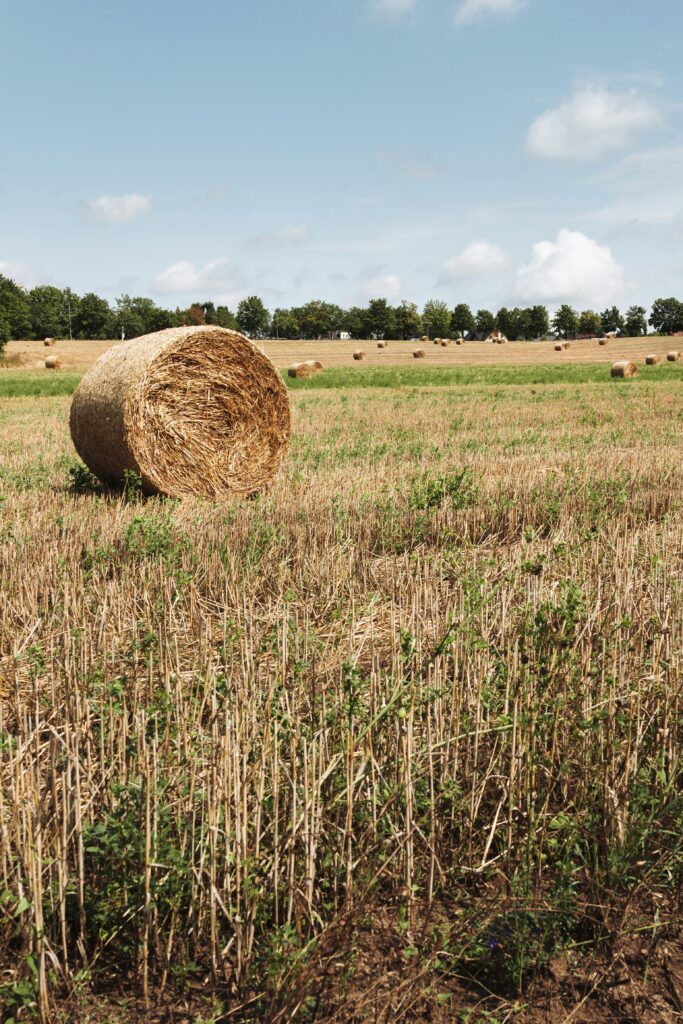It has been a fast and furious summer here, and we have fallen behind on our bi-weekly round ups. We are here today to help get you caught up on the biggest ag law news around the country!

Photo by Nikita Pishchugin
*Court rules Massachusetts’ Question 3 is not preempted by Federal Meat Inspection Act. A Massachusetts federal court recently ruled that Massachusetts’ Question 3, a ballot initiative banning the sale of pork that is not raised in accordance with certain practices, is not preempted by the Federal Meat Inspection Act as the plaintiffs argued. In making this ruling, the Court drew a distinction between food safety, the topic addressed by the Federal Meat Inspection Act, and animal welfare conditions, which Question 3 is designed to address. [Read Opinion here.]
*Oklahoma court dismisses lawsuit challenging meat labeling law. An Oklahoma federal court has dismissed a lawsuit filed by the Plant Based Foods Association and Turtle Island Foods challenging the constitutionality of Oklahoma’s Meat Consumer Protection Act, which focuses on requirements for labeling products as “meat.” [Read Order here.] You may recall from this prior blog post, there is a similar lawsuit brought by Turtle Island Foods pending in Texas challenging Texas’ meat labeling law. Specifically, the Oklahoma federal court held that the plaintiffs lacked standing due to lack of proof of a sufficient injury. The court rejected the plaintiffs’ argument that the money and effort spent lobbying against the bill was sufficient injury for standing purposes. This concept of “resource drain standing” was also recently rejected by the US Supreme Court and discussed in an interesting article on Duane Morris’ Animal Law Blog here.
*Syngenta proposes new dicamba label; joins Bayer and BASF. Syngenta has proposed a new label for Tavium, its over-the-top dicamba product. They join Bayer and BASF who both have registration requests for their own dicamba products pending as well. Syngenta’s proposed label would allow over-the-top use in soybeans but would limit that use to whichever occurs first of the V2 growth stage or June 12. For cotton, over-the-top use would be permitted until the crop reaches 6-leaf growth stage but not later than July 30. [Read article here.] You may recall that earlier this year a federal court revoked the labels for three over-the-top dicamba products. [Read prior blog post here.] An Existing Stocks Order from the EPA allowed producers to use their existing stocks during the 2024 growing season, but for over-the-top dicamba to be allowed in the 2025 growing season and beyond, the EPA would be required to register a new label like the three currently pending.
*The importance of recording lease agreements. Farm Progress recently published a great article discussing the importance of tenant agricultural producers recording their lease agreements in the county deed records. Although this is a practice that is not common, it is a critical protection for tenants in the event the land is sold during the term of the lease. Having a lease in writing and recorded are two key steps to protect a producer’s investment and effort put into leased ground. [Read article here.] We discuss this topic in more detail in our Ranchers Agricultural Leasing Handbook here.
* 5 steps to protecting your farm or ranch from accident or illness. My friend, Erin Swalwell, wrote a great article offering 5 steps every farmer and rancher should take to protect their operation from accident or illness. These steps are simple, but extremely important. [Read article here.]
* Are there opportunities with agrivoltaics? Farm Progress published an interesting article on the topic of agrivoltaics, or solar panels and agriculture co-existing on property. The most common example of this is likely sheep grazing under solar panels, but the article explains there may also be opportunity for haying, certain row crops, and even cattle or horses. [Read article here.]
*Austin homeowners questioning HOA restrictions on chickens in light of Right to Farm law. KUT News recently published a story questioning whether HOA restrictions prohibiting Austin homeowners from having chickens on their property are still valid after the Texas Right to Farm statute was amended and the Texas Right to Farm Constitutional Amendment was passed. This is not just an issue in Austin, as I’ve fielded similar phone calls from across Texas. [Read article here.]
*Future of Denver packing plant depends on Colorado ballot initiative. This fall, Colorado voters will vote on a ballot initiative that would ban slaughtering animals within the Denver city limits. If passed, this ban would impact only one business: Superior Lamb, the largest lamb packing facility in the country. Superior’s owners estimate if the plant is shut down, 160 people would lose jobs and about half of Superior’s lamb suppliers would be forced to find another packing plant, which could have major impacts on the US lamb industry. [Read article here.]
Upcoming Programs
Next week, I will be in College Station for Beef Cattle Short Course. If you are attending, please stop by our Texas Agriculture Law booth at the Trade Show to say hi to Karli and come learn more about ag law at our Landowner Rights Session on Tuesday afternoon. I’m looking forward to seeing many of you next week!
To see a complete list of my upcoming programs, click here.












